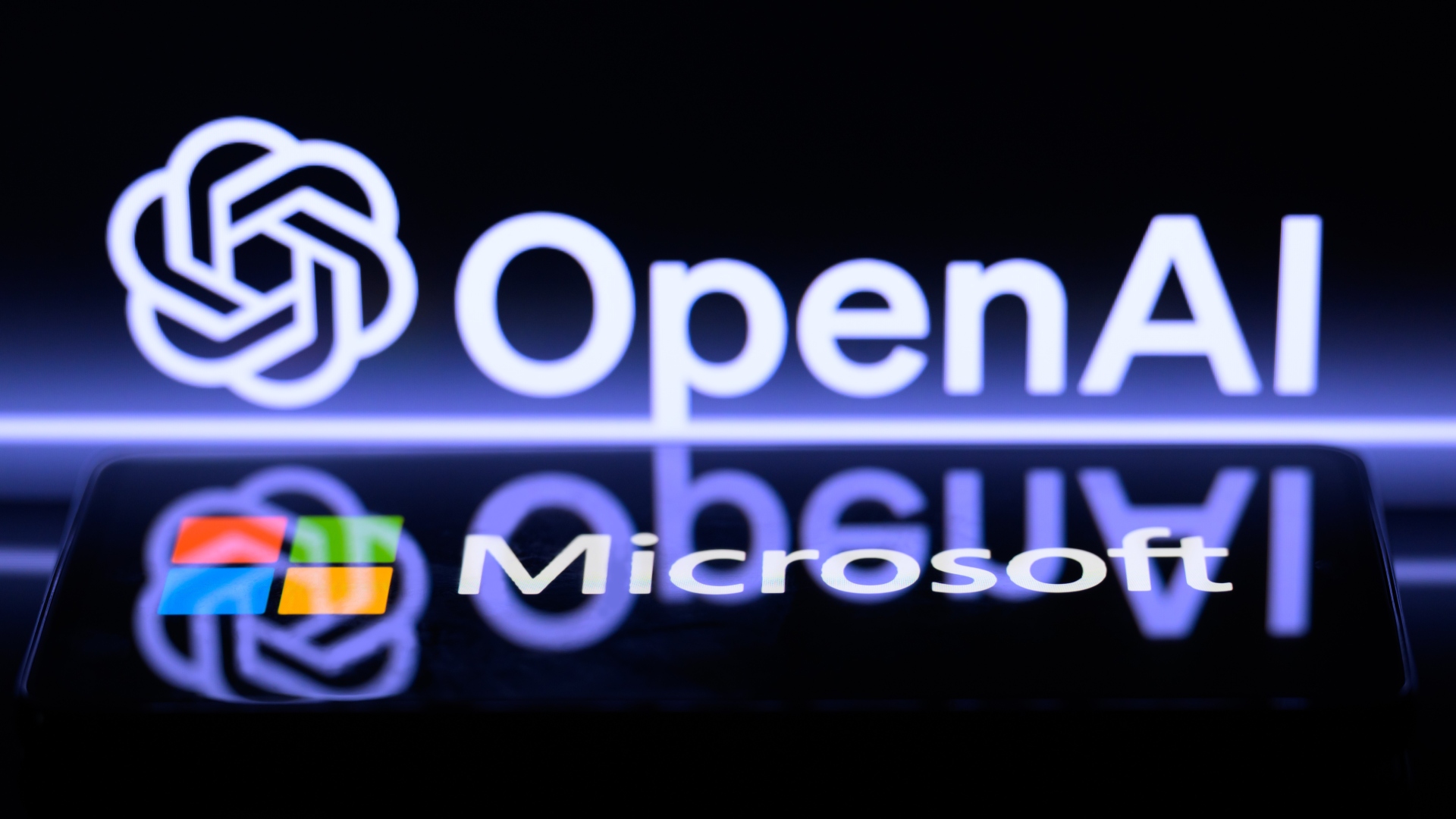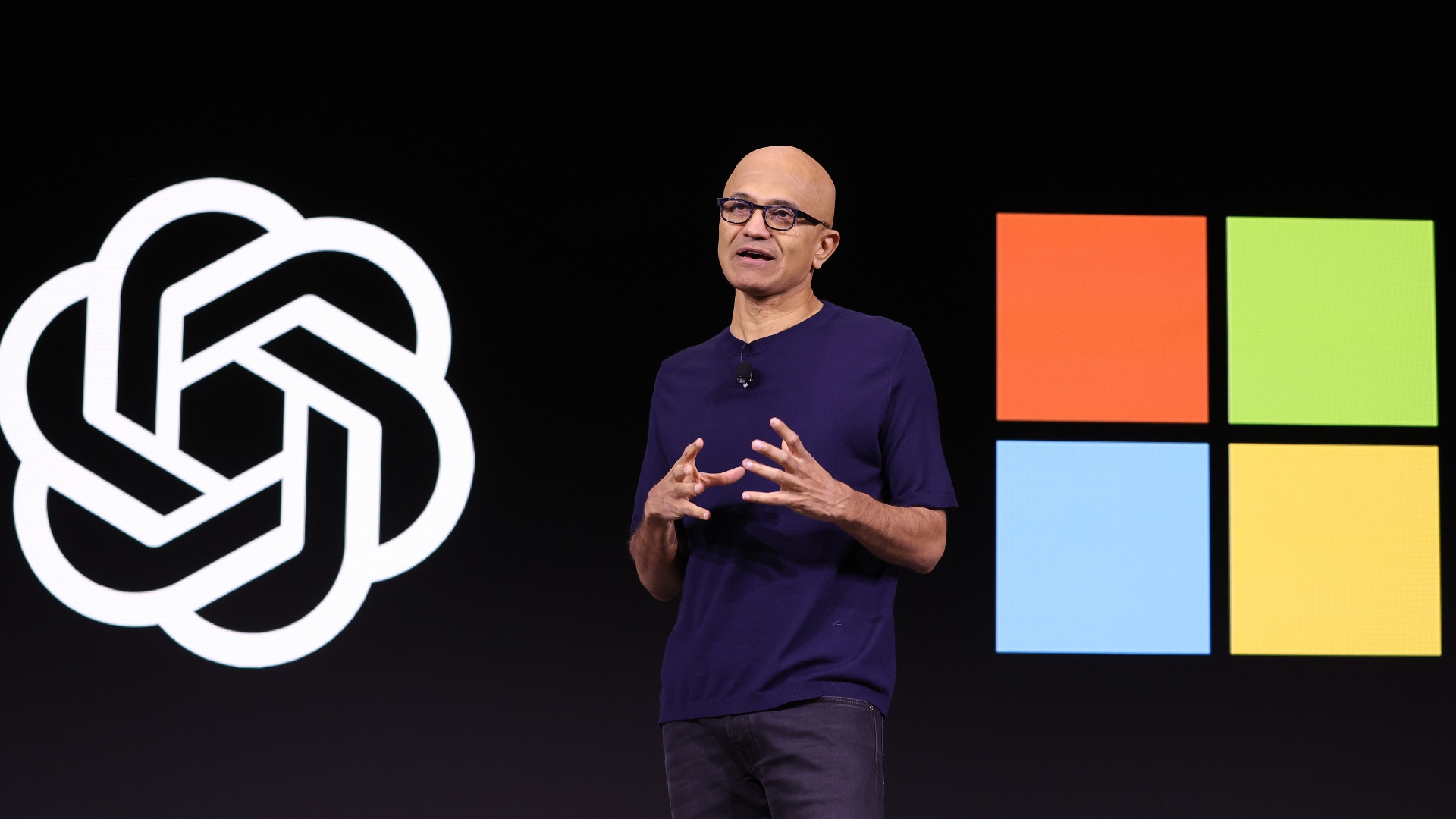Microsoft reportedly lacks the know-how to fully leverage OpenAI's tech — despite holding IP rights
The best tech bromance in history is facing turmoil, with OpenAI reportedly sharing new releases with Microsoft at the last minute.

All the latest news, reviews, and guides for Windows and Xbox diehards.
You are now subscribed
Your newsletter sign-up was successful
Over the past few months, a gigantic rift has seemingly formed between Microsoft and OpenAI's multi-billion-dollar partnership. While OpenAI CEO Sam Altman watered down the reported tension between both companies as a common occurrence in any deep partnership, it seems the once-best tech bromance in history keeps on fraying by the day.
At the beginning of this year, OpenAI unveiled its $500 billion Stargate project, designed to facilitate the construction of data centers across the United States for its AI advances. The news hit the tech world by storm, with executives like Salesforce CEO Marc Benioff predicting that Microsoft won't use OpenAI's technology in the future.
Shortly after, Microsoft lost its exclusive cloud partner title for OpenAI, though the tech giant's $13 billion investment in the ChatGPT maker still warrants it the “right of first refusal.” This means that it'll be the first option to host OpenAI workloads in its cloud infrastructure and services. However, it can be outsourced to other companies if Microsoft fails to meet the threshold and requirements.
More recently, a separate report claimed that Microsoft bailed out of two mega data center deals because it didn't want to support additional ChatGPT training. However, Sam Altman claimed that OpenAI was no longer compute-constrained.
Interestingly, Microsoft CEO Satya Nadella indicated that the company is deeply invested in OpenAI's success, further revealing that they make money from every ChatGPT use.
Things got more complicated when OpenAI announced its plan to transition into a for-profit entity in a bid to get more funding from investors to satisfy its ever-growing cloud computing needs and more. This is on top of mounting pressure from investors like SoftBank, which helped raise $40 billion in OpenAI's latest round of funding, pushing its market capitalization to over $300 billion.
However, OpenAI requires Microsoft's blessing to evolve into a for-profit venture. Multiple reports suggest that Microsoft is holding back because it wants to protect its best interests.
All the latest news, reviews, and guides for Windows and Xbox diehards.
The ChatGPT maker is under a tight deadline to make the transition or risk losing investor funding, including SoftBank's contribution. Microsoft reportedly wants a lion's share of the firm's new PBC (public benefit corporation), which is a little over the top than what OpenAI is willing to offer.
OpenAI could potentially be moving to court over Microsoft's anticompetitive behavior, which is barring its transition. However, Microsoft is on record stating that it is willing to walk away from the high-stakes for-profit evolution negotiations. This means that it will default to its current agreement with OpenAI, which runs through 2030.
The Microsoft-OpenAI partnership agreement is blurred at best
A separate report revealed that OpenAI could potentially want to renegotiate some of the terms in its partnership agreement with Microsoft, loosening its grip on its IP (intellectual property) and next-gen technology.
This is after it came to light that OpenAI wants to acquire Windsurf (an AI coding tool) for $3 billion, its largest acquisition so far. Microsoft offers GitHub Copilot, which directly competes with Windsurf. As such, its access to OpenAI's IP, including Windsurf, could raise serious anticompetitive concerns.
However, Microsoft has agreed to the Windsurf acquisition and is even willing to remove its IP from the new partnership agreement. According to Business Insider, Windsurf's CEO Varun Mohan doesn't want Microsoft to access the company's technology.
Elsewhere, OpenAI could prematurely declare AGI to sever its ties with Microsoft by shipping an AI coding agent that supersedes the capabilities of an advanced human programmer.
AGI (artificial general intelligence) is increasingly becoming a buzzword in the tech world, but a leaked document of Microsoft and OpenAI's partnership agreement defines it as a powerful AI system that supersedes human capabilities and is capable of generating up to $100 billion in profit.
But as things stand, Microsoft still holds exclusive rights to access and sell OpenAI's next-gen technology via its Azure cloud platform. However, a source with knowledge about the multi-billion-dollar partnership revealed that OpenAI's interpretation of IP is subject to interpretation, as it doesn't include intricate details like product and user interface information.
The source further disclosed that OpenAI isn't compelled to share products that are under development until they are finished. Again, a fully developed product can be hard to define:
"You can make sure you share something with Microsoft as late as possible, so they can still simultaneously announce, but make it really difficult to build the same product on top of it."
Interestingly, the source indicated that Microsoft having access to OpenAI's IP doesn't necessarily mean that it knows how to use the technology, citing OpenAI's frustration over Microsoft constantly requesting help to spell out the tech to its employees. Microsoft reportedly doesn't know what questions to ask OpenAI.
OpenAI is indeed under siege after Mark Zuckerberg announced Meta's new Superintelligence Labs with former Scale AI Alexandr Wang at the helm. The Facebook maker managed to infiltrate OpenAI's home and got a battalion of its AI talent to jump ship with attractive $100 million signing bonuses and year-one compensation.
The AI firm recently sent its employees on a mandatory week-long vacation amid claims of subjecting them to 80-hour workweeks as it comes up with a battle plan to tackle the fierce AI race.

Kevin Okemwa is a seasoned tech journalist based in Nairobi, Kenya with lots of experience covering the latest trends and developments in the industry at Windows Central. With a passion for innovation and a keen eye for detail, he has written for leading publications such as OnMSFT, MakeUseOf, and Windows Report, providing insightful analysis and breaking news on everything revolving around the Microsoft ecosystem. While AFK and not busy following the ever-emerging trends in tech, you can find him exploring the world or listening to music.
You must confirm your public display name before commenting
Please logout and then login again, you will then be prompted to enter your display name.

